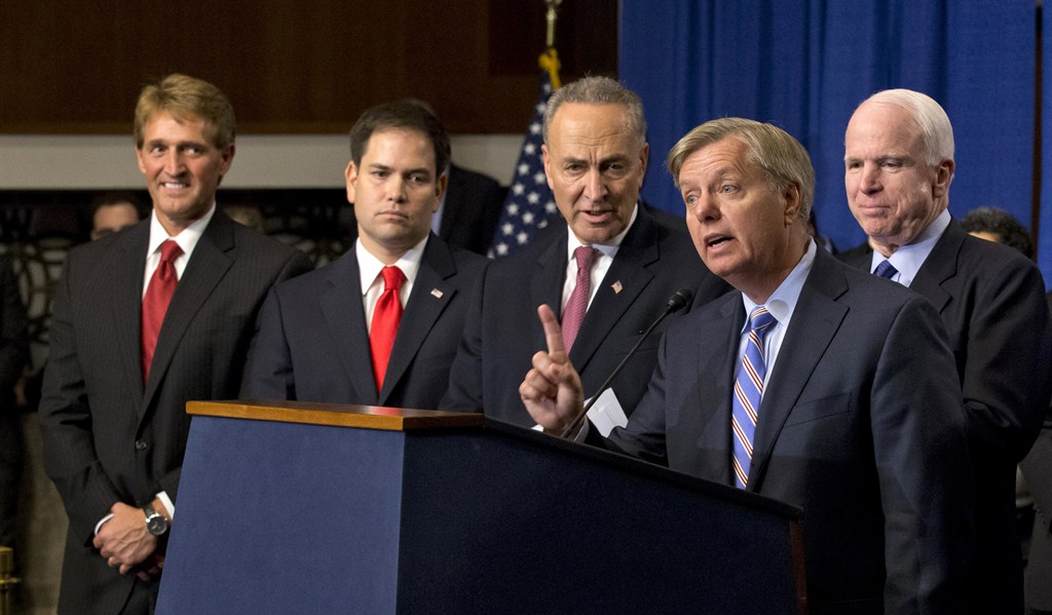There are serious doubts about whether the GOP-led House and the Democrat-led Senate can reach an agreement. Even the title that Republican House committee chairman Bob Goodlatte has given to the hearing could spell trouble: "S. 744 and the Immigration Reform and Control Act of 1986: Lessons Learned or Mistakes Repeated?" The "S. 744 in the title is the Gang of Eight bill, while the 1986 Immigration Reform and Control Act is the spectacular failure -- one that led to the arrival of millions of illegal immigrants in the United States -- that many of today's lawmakers say they would like to avoid. Just bringing up 1986 is something Republicans who oppose comprehensive reform do a lot; Democrats, not so much. But on Wednesday, it will frame the whole issue.
There has been a lot of talk about the House version of the Senate Gang of Eight and the bill it is crafting. Well-informed sources say House Gang members have reached agreement on most, if not all, of the issues that stood in the way of their finishing a bill. But for the larger Republican caucus in the House, the question on immigration reform will not hinge on whether it can accept this health care provision or that guest worker provision; it will hinge on the fundamental question of whether they can accept the legalization-first, enhanced-security later structure of the Gang of Eight bill. It is the most basic disagreement between the parties over immigration reform. Many in the House GOP will not be able to support a bill that contains legalization first, and nearly all Democrats will not be able to support a bill that does not contain legalization first.
Recommended
"To do legalization first, with promises of future enforcement -- that's just not going to work," notes one House Republican.
The legalization-first fight will likely take the form of Democrats supporting a comprehensive bill versus Republicans in favor of dividing immigration into several separate bills. Dividing the issue would allow the House to pass border security and enforcement measures first and then to pass other measures -- legalization, guest workers, etc. -- that would take effect after the security increases are actually in place.
That is most likely what a majority of the House's 234 Republicans would prefer. But it is anathema to Democrats, and it is anathema to the Senate Gang. Recently in the Senate Judiciary Committee, Republican Gang members Lindsey Graham and Jeff Flake joined unanimous Democrats to oppose an amendment, supported by the other six Republicans on the committee, that would have required enhanced security measures to be in place for six months before legalization could begin. For Charles Schumer and committee Democrats, that would have been a deal-killer. Graham and Flake went along.
The question in the House is whether the House Gang can produce some sort of legalization-first scheme that sounds tougher than the Senate Gang's, but still does not have a real, concrete requirement of enhanced security. Maybe that is possible. In a recent Twitter exchange with Washington Post liberal blogger Greg Sargent, I wrote, "Conservatives don't like legalization first, with no guarantee of enhanced security. Dems won't support anything else." Sargent replied: "Right. Everything is about papering over the fact that there is no actual trigger now, right?"
That is indeed right. What the House debate will show is whether Republicans will accept a bill that mirrors the Senate's legalization-first scheme or require actual security measures to be in place before legalization occurs. Whatever happens, Democrats will not move on legalization first. If Republicans accept it, an immigration reform bill will pass. If Republicans don't, the bill will fail.

























Join the conversation as a VIP Member